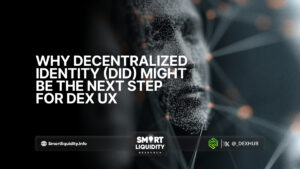In the rapidly evolving world of cryptocurrency and blockchain technology, decentralized finance (DeFi) has revolutionized how people trade assets. One of the most significant advancements in this field is the introduction of decentralized order book models. These models represent a shift from traditional centralized exchanges, offering a new way for traders to interact without relying on a middleman.
Understanding Decentralized Order Books
Decentralized order books are systems that allow buyers and sellers to trade directly with each other, without the need for a centralized authority to match orders. In traditional exchanges, a central server controls and facilitates all transactions, creating a single point of failure and often leading to higher fees. However, decentralized order book models eliminate this intermediary, enabling peer-to-peer trading in a more secure and transparent environment.
How Do They Work?
In a decentralized order book model, all orders are recorded on the blockchain. This ensures transparency and immutability, allowing participants to see order history and match trades directly with one another. Smart contracts handle the execution of trades, making the process automated and trustless. Consequently, users can trade assets securely without needing to trust a third party, unlike in centralized exchanges.
Benefits of Decentralized Order Books
One of the primary benefits of decentralized order books is increased security. Since users maintain control of their assets, they are less vulnerable to hacks or platform failures. Additionally, these systems reduce the reliance on central authorities, fostering greater privacy and autonomy. With decentralized order books, transaction fees are typically lower, as there are no intermediaries to charge for services.
Challenges and Future Outlook
Despite their advantages, decentralized order books face certain challenges. For example, liquidity can be a concern, as matching orders may take longer compared to centralized exchanges. However, with the continuous development of DeFi protocols and the increasing adoption of decentralized solutions, these issues are likely to be addressed.
In conclusion, decentralized order books offer a promising alternative to traditional trading methods. By embracing blockchain technology, they enhance transparency, security, and control, paving the way for a more efficient and user-centric financial ecosystem.






